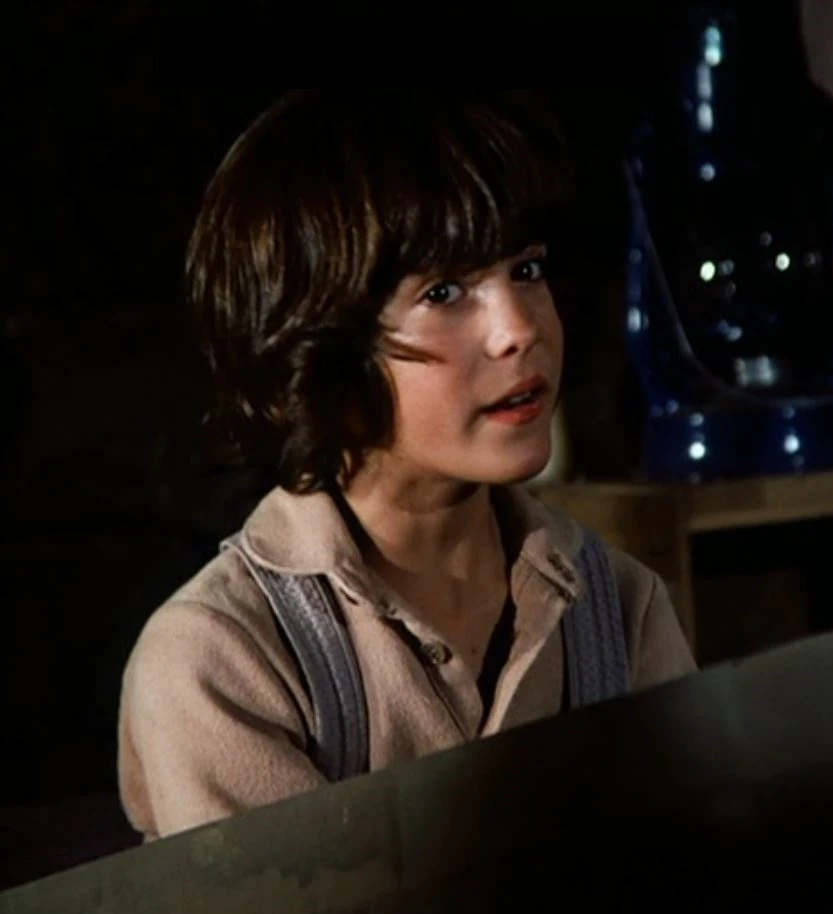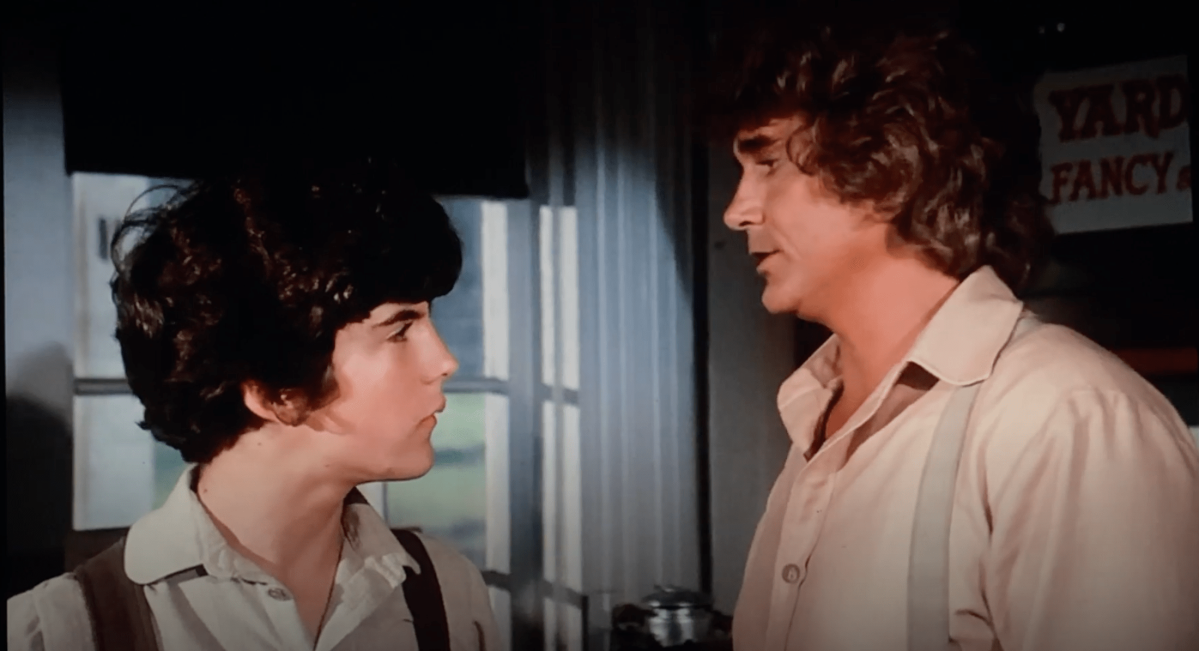Albert Ingalls: The Forgotten Figure Behind The Little House Legacy
Albert Ingalls, a name often overshadowed by the Little House on the Prairie series, holds an intriguing story that deserves recognition. As the younger brother of Caroline Ingalls, Albert's life intertwined with the Ingalls family, shaping their journey in ways that are rarely discussed. This article delves into his biography, contributions, and the legacy he left behind, shedding light on a lesser-known but significant figure in American history.
While the Little House books primarily focus on Laura Ingalls Wilder's life, Albert Ingalls played a crucial role in the family dynamics. His presence adds depth to the narrative of frontier life and provides a broader understanding of the Ingalls family's experiences. By exploring Albert's life, we uncover a richer tapestry of the challenges and triumphs faced by pioneers during this era.
This article aims to provide a comprehensive look at Albert Ingalls, covering his early life, family connections, and the impact he had on the Ingalls family. Through historical research and analysis, we will uncover the untold stories and contributions of Albert, ensuring his place in history is acknowledged and appreciated.
Table of Contents
- Biography of Albert Ingalls
- Early Life and Family Background
- Family Connections and Influence
- Life as a Pioneer
- Albert's Impact on the Ingalls Family
- Challenges Faced in Frontier Life
- The Legacy of Albert Ingalls
- Historical Context of the Little House Era
- Data and Statistics on Frontier Life
- Sources and References
Biography of Albert Ingalls
Personal Data and Biodata
Albert Ingalls, born on January 10, 1839, in Cuba, New York, was the younger brother of Caroline Quiner Ingalls, the matriarch of the Ingalls family. Below is a summary of his personal information:
| Full Name | Albert Quiner Ingalls |
|---|---|
| Birth Date | January 10, 1839 |
| Birthplace | Cuba, New York |
| Parents | Henry Quiner and Charlotte Birch |
| Siblings | Caroline Quiner Ingalls, Henry Quiner Jr., and others |
| Occupation | Pioneer, Farmer, and Laborer |
Early Life and Family Background
Albert Ingalls grew up in a modest family in rural New York. His early years were marked by hard work and resilience, qualities that would define his later life. The Quiner family, like many others during this period, faced numerous challenges, including financial difficulties and the loss of loved ones.
Albert's connection to the Ingalls family began when his sister Caroline married Charles Ingalls. This union strengthened the bond between the two families, creating a support system that was vital for survival in the harsh frontier environment.
Family Connections and Influence
Albert's Relationship with the Ingalls Family
Albert Ingalls maintained close ties with the Ingalls family throughout his life. His relationship with his sister Caroline was particularly strong, and he often provided assistance during difficult times. Whether it was helping with farm work or offering emotional support, Albert played a pivotal role in the family's well-being.
- Provided labor support during harvest seasons.
- Offered financial aid when the Ingalls family faced economic hardships.
- Served as a confidant and advisor to Caroline and Charles Ingalls.
Life as a Pioneer
As a pioneer, Albert Ingalls experienced the hardships and triumphs of frontier life firsthand. From clearing land for farming to building homes and communities, his contributions were instrumental in shaping the region's development. His adaptability and determination allowed him to thrive in an environment that tested the limits of human endurance.
The challenges of pioneer life included unpredictable weather, limited resources, and the constant threat of disease. Despite these obstacles, Albert remained steadfast in his commitment to creating a better life for himself and his family.
Albert's Impact on the Ingalls Family
Supporting the Ingalls Family Through Thick and Thin
Albert Ingalls' influence on the Ingalls family extended beyond mere financial or physical assistance. His presence offered a sense of stability and security during turbulent times. By being a reliable source of support, Albert helped the family navigate the uncertainties of frontier life.
His contributions were not limited to practical matters; Albert also played a significant role in preserving family traditions and values. Through his actions and words, he reinforced the importance of unity, perseverance, and resilience, qualities that became central themes in the Little House series.
Challenges Faced in Frontier Life
The frontier life that Albert Ingalls embraced was fraught with challenges. From harsh winters to crop failures, the pioneers faced numerous obstacles that tested their resolve. Below are some of the key challenges Albert encountered:
- Harsh weather conditions, including blizzards and droughts.
- Economic instability due to fluctuating crop prices and market conditions.
- Health risks posed by diseases such as cholera and malaria.
- Social isolation and the struggle to build and maintain community ties.
The Legacy of Albert Ingalls
Although Albert Ingalls may not be a household name, his legacy lives on through the stories of the Ingalls family. His dedication to family, community, and the ideals of frontier life serves as a testament to the strength and resilience of the pioneers who shaped America's heartland.
Today, Albert's contributions are remembered and celebrated by historians and enthusiasts of the Little House series. His story reminds us of the often unsung heroes who played crucial roles in shaping the nation's history.
Historical Context of the Little House Era
The Little House era, spanning the late 19th century, was a period of significant change and transformation in American history. The westward expansion, driven by the promise of land and opportunity, brought millions of settlers to the frontier. This movement was fueled by policies such as the Homestead Act of 1862, which offered free land to those willing to develop it.
According to historian William Cronon, the frontier experience was defined by the interplay between human ambition and the natural environment. Albert Ingalls' life exemplifies this dynamic, highlighting the challenges and opportunities faced by pioneers during this transformative period.
Data and Statistics on Frontier Life
Understanding the realities of frontier life requires an examination of the data and statistics from the era. Below are some key figures that provide insight into the lives of pioneers like Albert Ingalls:
- Approximately 600,000 settlers claimed land under the Homestead Act between 1863 and 1900.
- The average homestead size was 160 acres, requiring significant labor and investment to develop.
- Mortality rates were high, with disease and accidents claiming many lives, particularly among children.
- Only about 40% of homesteaders successfully "proved up" their claims, indicating the difficulties faced by pioneers.
Sources and References
This article draws on a variety of sources to provide a comprehensive overview of Albert Ingalls and his role in the Little House story. Below are some of the key references used:
- Wilder, Laura Ingalls. Little House on the Prairie. HarperCollins, 1935.
- Cronon, William. Nature's Metropolis: Chicago and the Great West. W.W. Norton & Company, 1991.
- Anderson, William T. The Little House Guidebook. HarperCollins, 1996.
- U.S. National Archives. "The Homestead Act of 1862." Accessed October 10, 2023.
Conclusion
Albert Ingalls, though often overlooked in the Little House narrative, played a vital role in the lives of the Ingalls family and the broader frontier community. His contributions, both practical and emotional, helped shape the family's journey and left a lasting legacy that continues to inspire. By exploring his life and impact, we gain a deeper appreciation for the complexities and triumphs of pioneer life.
We invite you to share your thoughts and reflections on Albert Ingalls' story in the comments below. Additionally, consider exploring other articles on our site that delve into the rich history of the Little House era. Together, we can continue to uncover the untold stories of America's pioneers and celebrate their enduring legacy.


